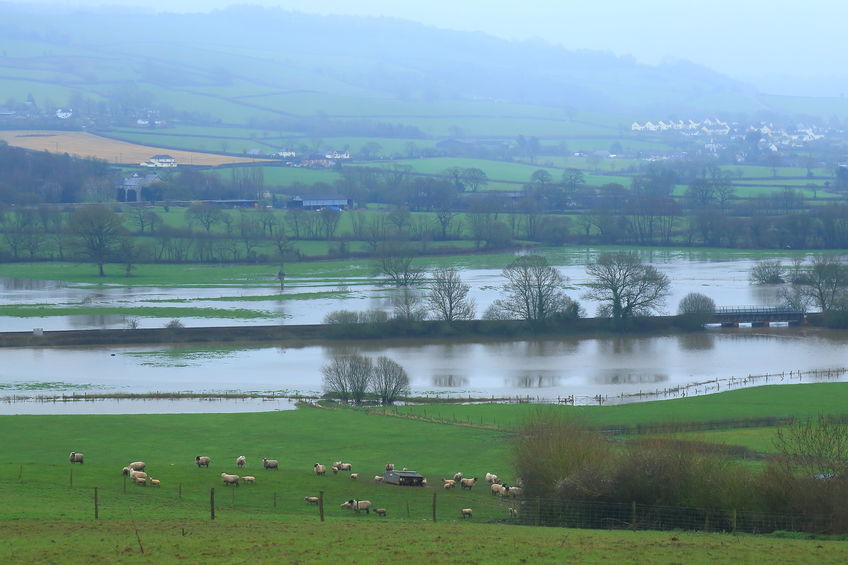
Farmers should be 'appropriately incentivised' when participating in natural flood management initiatives such as allowing land to flood, MPs say.
The recommendation is included in a new report by the House of Commons Environment, Food and Rural Affairs Select Committee (EFRA).
It calls on the government to 'show leadership' in the face of an escalating climate crisis as 'vague' flood defence objectives are leaving homes and businesses vulnerable.
Scrutinising existing approaches to managing flood risk, including schemes for sustainable drainage and working with nature, the report proposes several measures.
Of interest to farmers and landowners is a recommendation for the government to 'properly pay' farmers to flood their land.
Flooding experts say paying landowners to store water is one of the most effective ways of reducing the risk of homes and businesses downstream.
But EFRA's report says natural flood management should be scaled up, while ensuring a catchment-based approach that takes account of local conditions.
"The government should ensure that natural flood management schemes will involve farmers at every stage of identifying, designing and implementing a scheme," it says.
"The government should also ensure that farmers are paid appropriately for the public goods provided, and that financial assistance and technical advice for long-term maintenance are provided
"Any scheme must also include clarity on liability should a flood occur," EFRA's report adds.
It comes after the NFU said that significant investment in water infrastructure was 'crucial' to protect existing farmland and food production from future volatile weather.
The union has called for a 'multi-sector integrated water management strategy' to secure a fair share of water for agriculture and establish the agri-food sector as an essential user of water.
